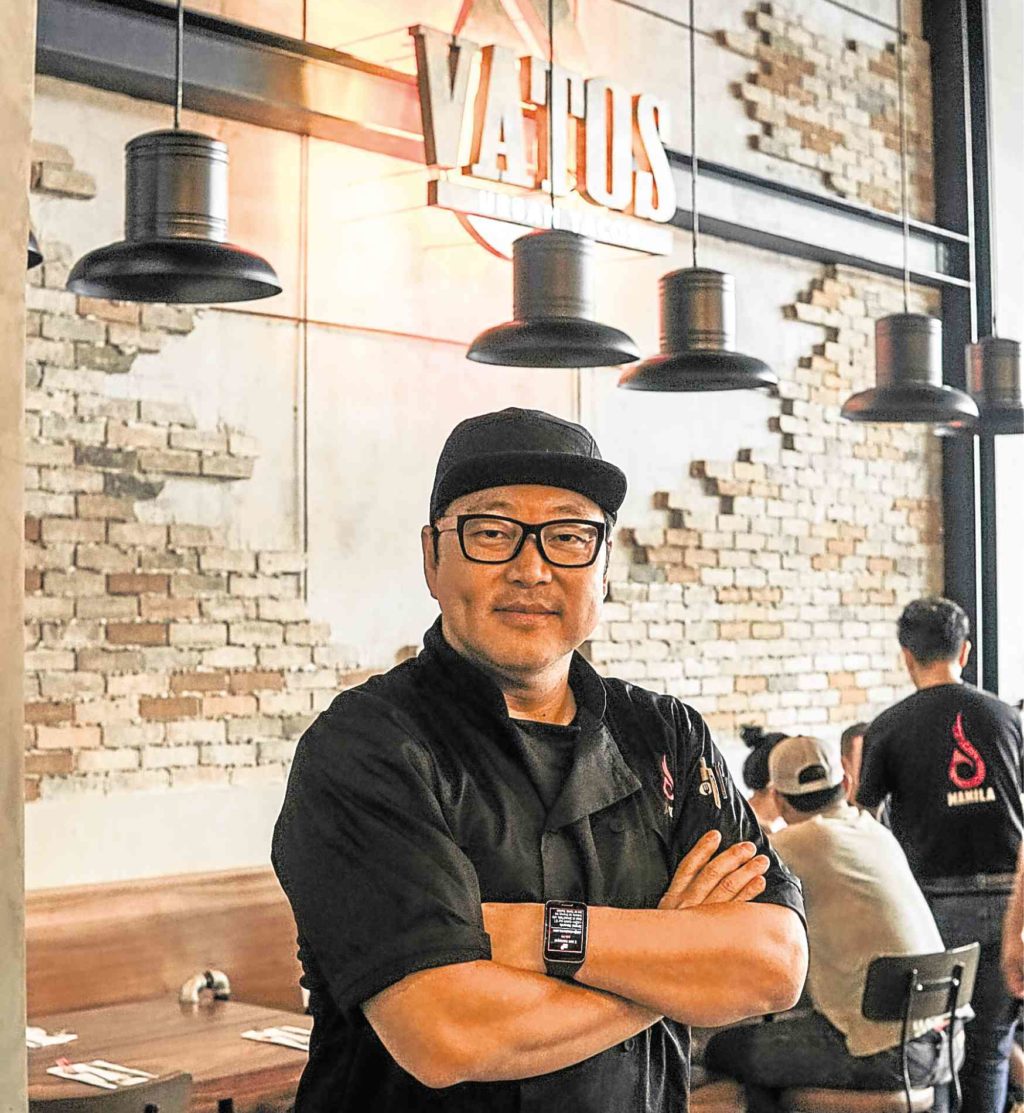At first glance, the culinary traditions that inform the menu items of Vatos Urban Tacos, one of the newest restaurants to pop up in the Bonifacio Global City, may seem too disparate to ever blend well together.
Korean and Mexican? Really?
But as Vatos Urban Tacos founded in 2011 by Juweon Kim, Sid Kim and Kenny Park has proven, these proud cuisines can indeed come together in a marriage nicknamed “KoMex” that is a delight to the senses and one that is not forced by chefs just to be different, but resulting from a natural evolution first celebrated in the melting pot that is California.
Fusion
“Anybody who grew up in LA will know what KoMex is,” says Kim, who was in the country recently to oversee the development and the opening of the Philippine branch of Vatos Urban Tacos.
He explains that the fusion was to be expected as one of the biggest groups of Koreans outside Korea is in Los Angeles. There they own a multitude of small businesses, such as appliance stores and dry cleaners, and there they work side by side with Mexicans, who comprise a sizable portion of their employee force.
Home-cooked meals
It was over home-cooked meals from Mexico and Korea shared in enviable camaraderie in these little shops that the seed of the idea of developing a restaurant around KoMex was planted, leading to the setting up of the first Vatos Urban Tacos in Korea seven years ago with such signature dishes as kimchi carnitas fries, galbi tacos and spicy chicken quesadillas.
“I remember going to my dad’s store and there were Korean food and Mexican food and people will share and split … it was a crazy fusion, but it’s not. If you think of a taco, there is grilled or braised meat in a tortilla. With Korean food, we also had grilled meat and hot sauce but there was lettuce. It was very similar, only the vehicle was different. And that is how we came up with the concept for Vatos,” says Kim.
The group was also inspired by the groundbreaking work of Roy Choi, generally regarded as the king of the food trucks in the United States, and was the first to bring KoMex outside the Korean and Mexican communities to the mainstream.
“He was an inspiration. Secretly, we had been eating this food but nobody thought of bringing it out of our communities. And so we thought, why not sell the same food in Korea?” says Kim.
And so they did, with the first Vatos Urban Tacos set up on a 60-square-meter property in what used to be regarded as one of the more seedy places in Korea.
But it was undergoing gentrification and so Vatos opened at the right time. It quickly became one of the hottest destinations in Seoul.
Koreans were hungry for new experiences and Vatos Urban Tacos, with its familiar and yet new food, offered a delicious alternative. Vatos, which is Mexican slang for “my dudes” or “my homeboys,” thus became an overnight sensation.
“We were there for just nine months because we realized that we needed to find a bigger place, fast,” he says.
Thus from 60 square meters, they moved to a 220-square-meter property in 2012 that is still “crazy,” especially on weekends when friends and family come together after a hard week at work.
And from there, Kim, who left behind a successful corporate career to pursue his true passion of having his own restaurant and sharing the food that is close to him with the world, has expanded to other countries, first in Singapore in December 2015 and then this year in the Philippines, where the group is in joint venture with Leo and Patricia Riingen.
Perfect partner
“We believe we have found a perfect partner in them for Manila,” says Kim.
There are challenges to expanding beyond home territory, he says, not least of which is making sure that the right ingredients are available.
But the advantage in the Philippines is that the rent for restaurants is still reasonable, workers with experience are not hard to find and the people are open to trying something new.
And here, he is positive that Vatos has the four ingredients that comprise a successful restaurant—food, drinks, service and atmosphere.
“It sounds simple, these four things. But to get all of them right is the hardest thing in the world,” says Kim. “But we are positive we are going to do well here.”
